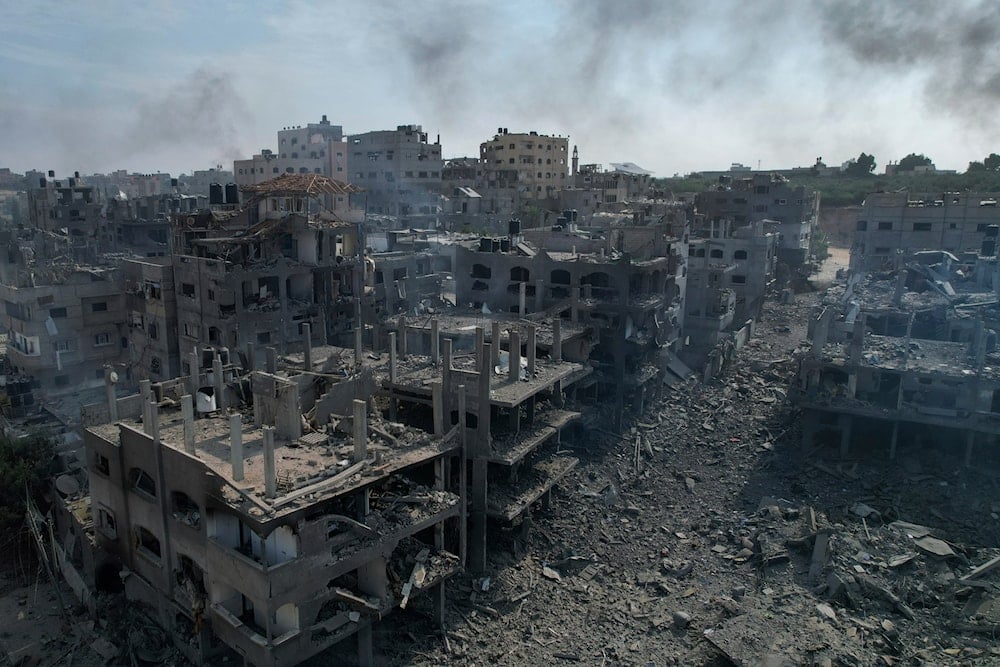'Israel' erased a town of 200,000 Palestinians: FT
A densely populated area was reduced to rubble, as Israeli forces carried out what is described as ethnic cleansing of the Palestinians living there.
-

A view of the rubble of buildings hit by an Israeli airstrike, in Jabalia, Gaza strip, on October 11, 2023. (AP)
A Financial Times (FT) report on Wednesday noted that since the war began on October 7, 2023, no area in the Gaza Strip has escaped the devastating force of the Israeli army and its heavy airstrikes. However, the report emphasized that no place has suffered destruction like Jabalia, the historic city that lent its name to the nearby refugee camp after the Israeli occupation of Palestine in 1948.
The camp has grown to become one of the largest in the Palestinian territories, with the Jabalia camp and its surrounding areas housing an estimated 200,000 people, including more than 100,000 officially registered refugees, according to UN officials and local authorities.
The Israeli aggression caused widespread destruction not only in Jabalia but also in the neighboring areas of Beit Lahia and Beit Hanoun. The scale of the devastation prompted "Israel's" former security minister late last year to label the army's actions in northern Gaza as "ethnic cleansing."
Israeli aerial attacks have reduced the Jabalia refugee camp to acres of rubble, visible to drones, with its streets—once filled with residents—now buried under the debris of tens of thousands of homes, according to FT.
A lawyer who refused to leave the Gaza Strip, Ibrahim al-Kharabishi, said, "The scene on the ground is terrifying."
He said, "We see bodies that no one dares remove as far as the eye can see. We hear the injured call for help and some of them die," adding, "Whoever feels brave enough to go to their succour falls next to them and then we hear two voices crying for help instead of one."
According to the FT, the Israeli occupation army denies implementing what is known as the "Generals' Plan," proposed by former National Security Advisor Giora Eiland, which calls for the forcible evacuation of northern Gaza and the obstruction of humanitarian aid.
However, a senior Israeli official stated that northern Gaza "will never be the same again."
"You can call it a buffer zone, you can call it agricultural land, you can call it whatever you want, but there will be greater physical separation between Israeli communities and Palestinian towns," he added.
Inside Jabalia, the terror is intensified by the methodical nature of the destruction. Abdel Abu Ghassan reported that entire neighborhoods were leveled, including al-Fakhoura, al-Faluja, and Abu Sharif, according to FT.
He added that amid the explosions, "I stayed here despite the hunger. We, the people of the north, love this place, but the situation has become disastrous: famine, fear, and the destruction of every building."
Ten days after speaking to the Financial Times, his family reported that Abu Ghassan had been killed. He died in his beloved town of Beit Lahia in an Israeli airstrike, perishing amid the rubble of northern Gaza that he had refused to leave.

 3 Min Read
3 Min Read








